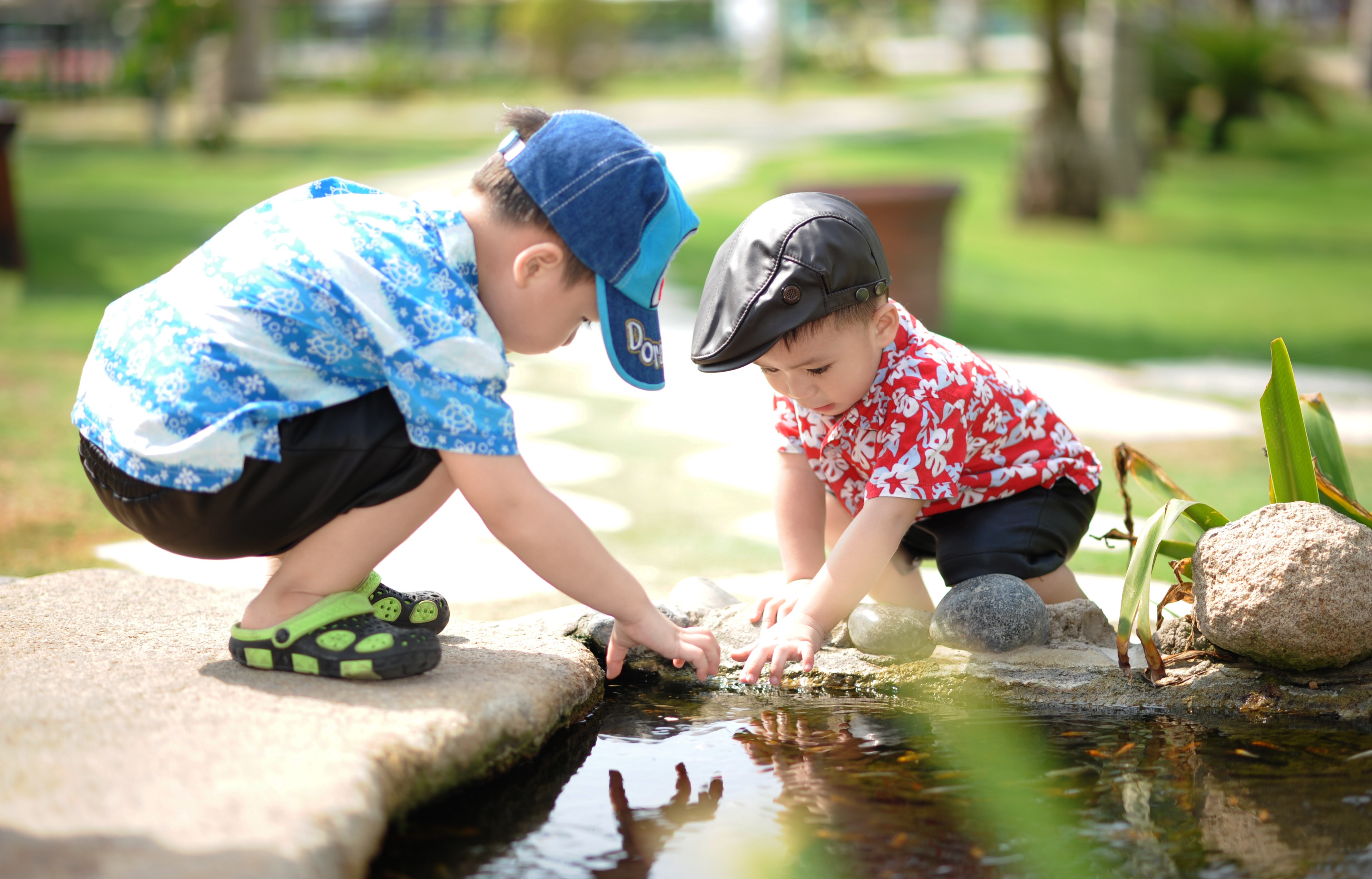
Exciting news! Starting in December, my blog will be better than ever. Want to know why? Stay tuned, would hate to spoil all the surprises.
For this week’s blog, you may need to get out your thinking cap a little and try to remember when you had the freedom to just play. I grew up in a time when it was safe to go outside and play for hours. For many of today’s kids, they won’t have the same memories and opportunities we did.
This shift is due in large part because society has changed but also because their time is much more structured than ours ever was. Even their “outdoor time” is generally planned out and managed in great detail. All this structure may not be all bad, but let me offer you some reasons why parents should consider some of the lessons from the past and encourage kids to tinker, explore, and push themselves physically outdoors!
“Risky” Play Concerns
Accidental deaths have become the leading cause of child mortality. Parents are understandably cautious, but it’s possible to be too cautious. Risky play has been defined as play that’s thrilling, exciting, and involves a threat of physical injury. More specifically, risky play involves heights, dangerous tools, speed, play near dangerous things (like a hole or lake a kid could fall into), and play in places where children could get lost.
If you think about it, that covers an awful lot of stuff we used to do as kids, like running around in the woods, tree climbing, soap box derby racing, and swinging out over lakes on rope swings.
Free Play and Behavior
“Kids today are different,” I hear some of you saying, for sure, “They use technology more, get outside less. That’s just how it is.” Well, here’s the thing. A long-term study looking at sixty-eight children found that kids in preschools where they had free play 21% of the time were genuinely better adjusted. Kids who were allowed free play only 2% of the time were tested at age 15. Researchers found that they were more likely to engage in misconduct. They were less likely to participate in athletics or be involved in their family or community. As they got older, the problem got worse, with trouble at work and even arrests.
Play and the Brain
So, why does a lack of free play have such a huge impact? The reason is because “play” affects the development of the brain’s frontal lobe. That’s the part that deals with things like executive functioning, creativity—and impulse control.
If you think about it, that just makes sense. When you climb a tree (or jump out of one) you have to assess the situation, make a plan, and execute it…look before you leap, so to speak. When you repeat an experience like that over and over, you hone your skills and your judgement (hopefully). And, yes, sometimes they fall, which teaches them caution.
When kids who never have that opportunity are unleashed on the outside world, they’re likely to react the way anybody would when suddenly faced with an unprecedented amount of freedom– they overdo it and get into trouble. It’s right to want to protect our kids, but when we shelter our kids too much, we actually may put them in more danger.
Letting Kids Lead
After WWII, adults in Europe found that kids weren’t as interested in traditional playgrounds anymore. Families had been dealing with air raids and enemy forces, so as you can imagine, outdoor swings and slides had lost their appeal. So in response, communities did a neat thing.
Parents built “adventure playgrounds.” Kids were provided building supplies and tools. Sand, water, and dirt were also made available. Sometimes staff was provided, but only to provide help, not to direct the play. These “adventure playgrounds” were located next to community gardens or farms so kids could source food and cook it themselves. The reason they did this was because parents still wanted their kids to experience the benefits of exploration and creativity even if playing outside had to be limited.
So if you are a parent of young kids or know someone who is, don’t disregard your instinct to take the kids out hiking, fishing or hunting, for example. You’re not being old-fashioned.
Heck, you could even give them an old appliance to take apart, or some scrap wood and tools to monkey with. If you find a kid halfway up a tree, avoid the tendency to climb up after them; instead ask them what their plan is, then provide ground support and give them a little trust while they figure it out. Let your kids get their hands on something real.
They’ll be physically and mentally healthier for it!
Your Virtual Life Mentor,
Doug

